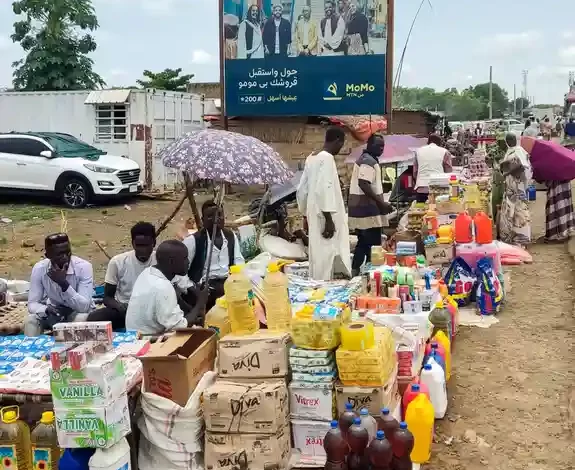What Legitimacy for Looted Commodities??

Report – Rehab Abdullah
As the war between the Sudanese army and the rebel Rapid Support Militia (RSF) entered its tenth month in Sudan in just a few days, activities related to a surging new trade have drastically increased. These are markets labelled Al-shafshafa, a Sudanese colloquial term coined to denote trade in looted, stolen, pickpocketed, forcefully taken commodities which are by product practices resulting from war situation. The practices were not hitherto known in most of the Sudanese communities. Those are stolen commodities, belongings, clothes, electronics and whatever thieves could put their hands on from citizens’ homes during the war period.
Dagalo Markets
New markets have appeared for goods looted from stores and homes, in which spoils of war are sold, including various looted goods, whether food items or household utensils and electrical devices, sold at surprisingly cheap prices compared to those found in shops. Some have called these markets as the (Dagalo Markets) in reference to the commander of the RSF Militia.
Since the beginning of the war that broke out between the army and the RSF on April 15, this new type of market has entered the capital, Khartoum, and the conflict areas, in Omdurman, Bahri, and Khartoum.
Cheap prices
A fellow journalist who is still staying at his home in Al-Kalakla in Khartoum, told Sudan Events that some people affiliated with the RSF Militia set up a market in the well-known Al-Kalakla Al-Lafa marketplace to sell looted items. However, he pointed out that some of those who work in it deny that the items they have were looted, but argue that the have in fact bought them from civilians who decided to leave Khartoum permanently because of the war. However, the journalist confirms that the reality of the situation says the opposite, because the prices are not commensurate with the cost of the goods in regular markets.
Some citizens confirmed that they are looted items, as a dinner set of household table set is sold for about 5 thousand pounds, whereas the price as the marketplace is 200 thousand pounds, and everything is sold at the cheapest prices, which indicates that it could possibly be looted items, and some merchants do not know the value of the supply, especially electrical appliances.
According to merchants and citizens, in the market for looted electrical appliances, prices are very cheap. It does not make sense for a television screen to be sold for 10,000 pounds, (about 10 $US) while the same set would fetch at least 70,000 pounds (70 $UD).
Merchants say that most of the food commodities on offer were obtained by some from stores that were looted, and therefore they are sold at the cheapest prices, especially sugar, flour, tea, rice, lentils, and oils.
The price of a 50-kilo bag of sugar was 10,000 pounds, and a 25-kilo bag of flour, rice, and lentils was about 5,000 pounds, in addition to oils sold per pound for 20 pounds.
Ruling on purchase
Citizens confirmed that they were forced to buy some of these items, justifying that they greatly alleviate their living conditions, despite their being aware that they were looted, while others believe that they are forbidden as long as they are looted.
Citizen Al-Sir Abdul-Mu’tal says that people have no option but to buy food and drink, but why do some people buy household and electrical appliances when they are fully aware these were looted or stolen objects?
Opinion of religion
The clerics have an opinion about buying these looted goods, as Sheikh Osama stated in statement to (Sudan Events) that this is definitely forbidden by religion and the buyers share thieves in their crimes.
He said that necessity is estimated by the need. There is no need unless a person is on the verge of death, then he only takes what keeps him alive.



